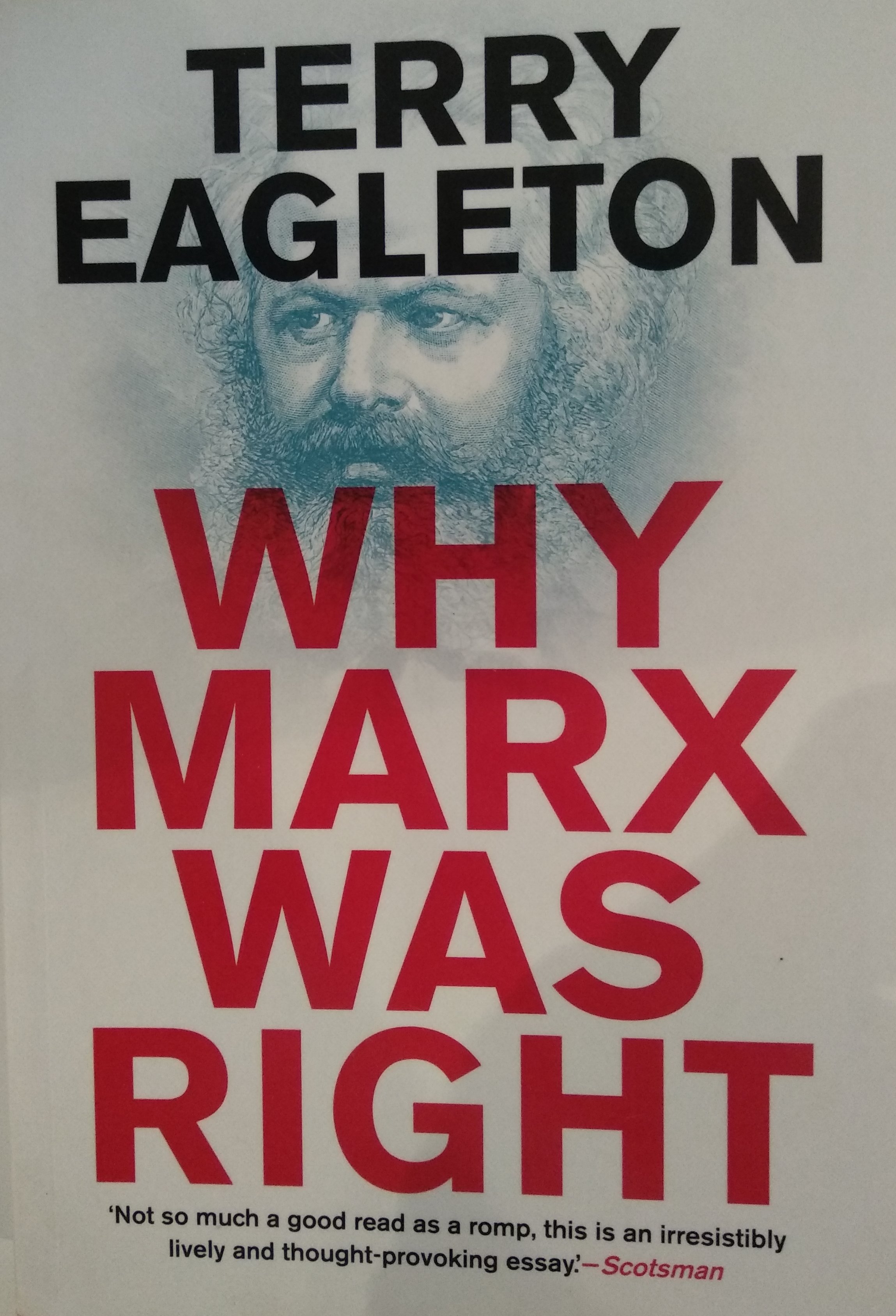
Why Marx Was Right
Terry Eagleton
About the Author

Terry Eagleton
Questions & Answers
Terry Eagleton argues that Marxism remains relevant despite changes in capitalism and society by emphasizing its enduring critique of the capitalist system. He points out that while capitalism has evolved, its fundamental logic of exploitation and inequality persists. He argues that Marxism's focus on the economic base and its influence on other aspects of society (the "base-superstructure" model) remains valid, as seen in the increasing influence of economic forces on politics, culture, and law. Eagleton also highlights the persistence of class struggle, despite changes in the composition of the working class, and maintains that Marxism's emphasis on social change and collective action is still relevant in addressing contemporary social and economic issues.
Terry Eagleton aims to refute the following key criticisms of Marxism:
-
Irrelevance of Marxism in Modern Society: Critics argue Marxism is outdated, as it's irrelevant in classless, mobile postindustrial societies. Eagleton counters by noting capitalism's persistence and its inherent contradictions, which Marxism effectively critiques.
-
Class Struggle as the Sole Driver of History: Critics claim this is reductionist and ignores other historical forces. Eagleton argues that while class struggle is central, it interacts with other factors, and Marxism doesn't deny the role of other historical forces.
-
Human Nature and Utopianism: Critics say Marxism has an idealized view of human nature and utopian visions. Eagleton counters by emphasizing Marxism's focus on material conditions and the potential for human development under socialism, not a rigid utopian blueprint.
-
Economic Reductionism: Critics argue Marxism reduces everything to economics. Eagleton counters by explaining that Marxism views production as a multifaceted activity, encompassing both material and creative aspects, and not solely as an economic process.
-
State as an Instrument of Oppression: Critics claim Marxism leads to a dictatorial state. Eagleton counters by highlighting Marx's opposition to the state and his vision of a state that withers away in a communist society.
-
Marxism's Contribution to Other Movements: Critics argue Marxism has little to offer to contemporary radical movements. Eagleton counters by noting Marxism's significant contributions to feminism, anti-colonialism, and other movements.
Terry Eagleton defines Marxism as a theory of long-term historical change, focusing on the economic and class struggle. He argues that class struggle is fundamental to human history, though not the only factor. He defines class as a social relationship within a mode of production, rather than just a matter of income or status.
Eagleton emphasizes the mode of production, which combines productive forces (like technology) with relations of production (like labor). He believes that as productive forces develop, they eventually conflict with the existing relations of production, leading to revolution and the rise of a new class.
Regarding alienation, Eagleton explains it as the condition where individuals forget that history is their own production and become mastered by it. He argues that alienation is rooted in the material conditions of life, particularly in capitalist societies where individuals are alienated from their work and from each other.
Eagleton defends these concepts by showing their relevance to contemporary issues, such as social inequality, economic crises, and environmental degradation, and by demonstrating how they offer a framework for understanding and addressing these problems.
Terry Eagleton views the state as an institution that serves the interests of the ruling class and is inherently biased towards maintaining the status quo. He advocates for a state that withers away in a communist society, not in the sense of a central administration, but as an instrument of violence that oppresses the masses. He supports democracy, but criticizes parliamentary democracy for being too centralized and not truly representative of the people. Instead, he advocates for a more direct form of democracy, where citizens govern themselves and participate in decision-making processes. In a Marxist society, Eagleton believes that political participation should be widespread and involve the collective exercise of self-determination, leading to a more democratic and equitable society.
Terry Eagleton addresses concerns about Marxism's materialism by emphasizing its focus on the practical, material nature of human existence. He argues that Marxism does not reduce everything to economics but instead recognizes the importance of human agency and collective action. Eagleton highlights that Marxism views consciousness as a product of our material interactions with the world, not as separate from it. This perspective challenges the idea that human nature is static or predetermined, suggesting that through changing our material conditions, we can transform ourselves and our society.
Regarding morality, Eagleton distinguishes between moralism, which abstracts moral values from their historical context, and a more rigorous moral inquiry that considers all aspects of a human situation. He argues that Marxism is not amoral but rather critical of the capitalist ethic of self-interest, advocating for a more fulfilling and self-actualized life. Eagleton's defense of Marxism's materialism underscores its potential to foster a more just and humane society.